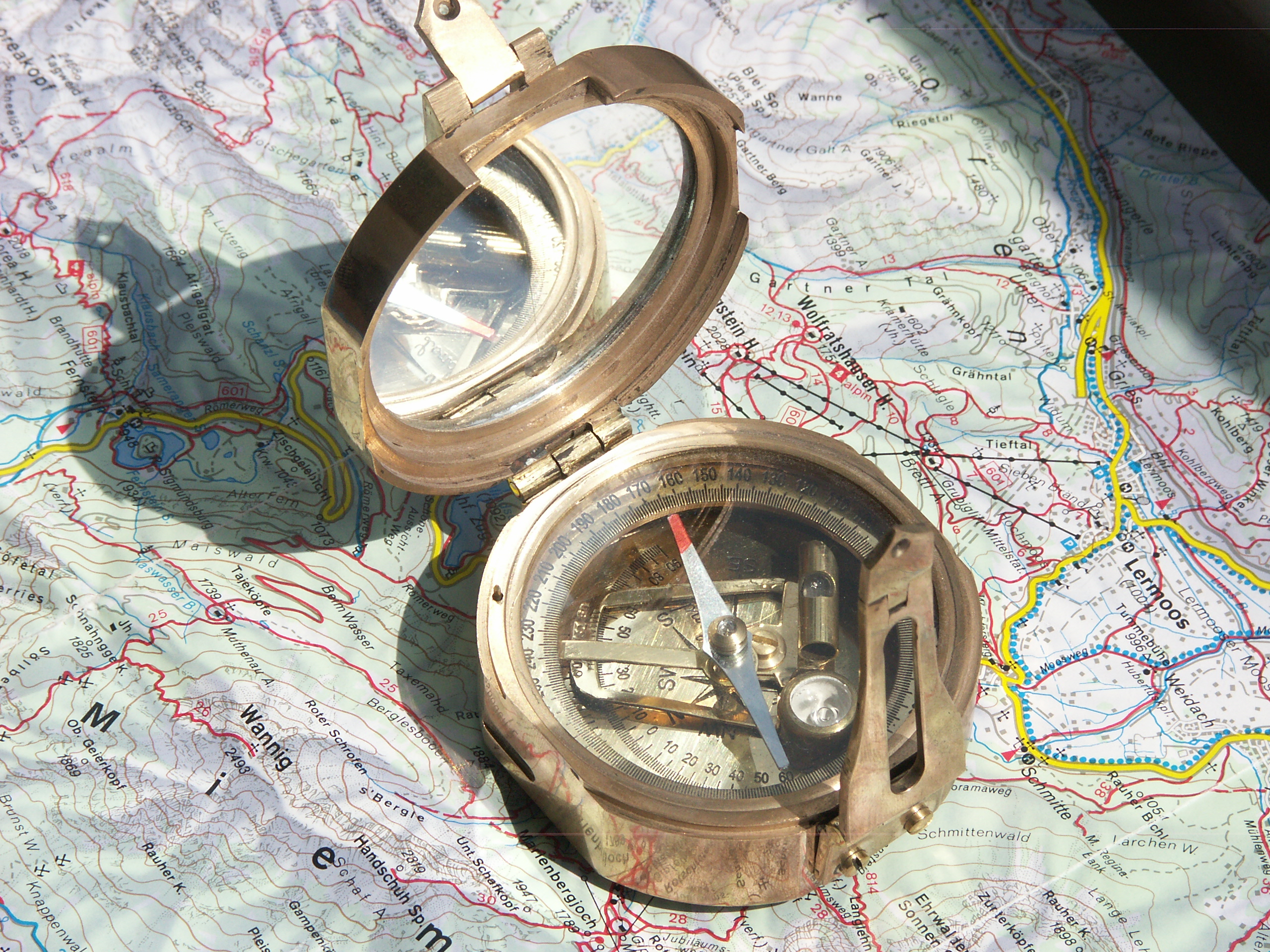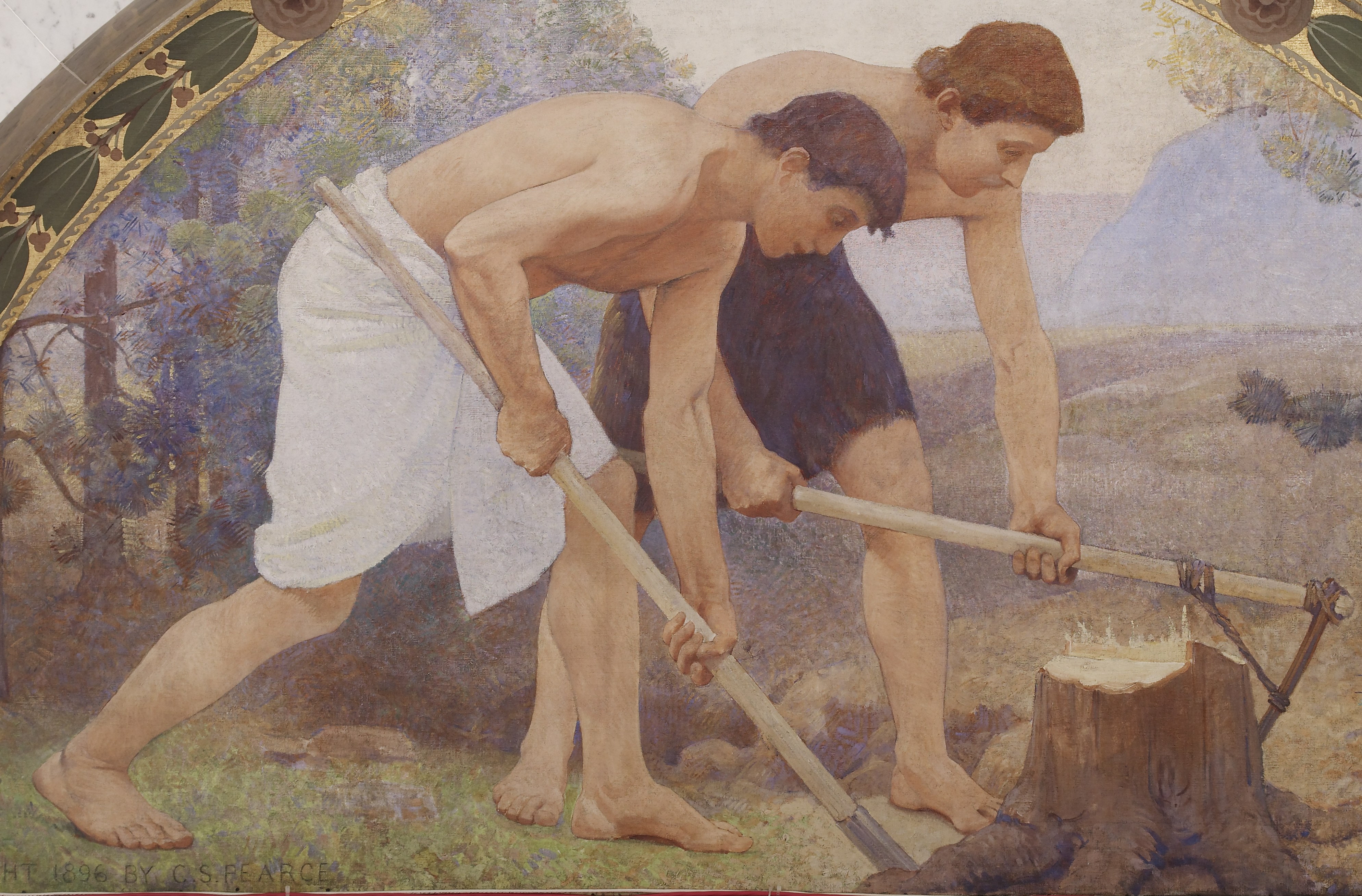|
Sexual Division Of Labour
The sexual division of labour (SDL) is the delegation of different tasks between males and females. Among human foragers, males and females target different types of foods and share them with each other for a mutual or familial benefit. In some species, males and females eat slightly different foods, while in other species, males and females will routinely share food; but only in humans are these two attributes combined. The few remaining hunter-gatherer populations in the world serve as evolutionary models that can help explain the origin of the sexual division of labor. Many studies on the sexual division of labor have been conducted on hunter-gatherer populations, such as the Hadza, a hunter-gatherer population of Tanzania. Behavioral ecological perspective Man the hunter vs. woman the gatherer Both men and women have the option of investing resources either to provision children or to have additional offspring. According to life history theory males and females monitor ... [...More Info...] [...Related Items...] OR: [Wikipedia] [Google] [Baidu] |
Delegation
Delegation is the assignment of authority to another person (normally from a manager to a subordinate) to carry out specific activities. It is the process of distributing and entrusting work to another person,Schermerhorn, J., Davidson, P., Poole, D., Woods, P., Simon, A., & McBarron, E. (2017). ''Management'' (6th ed., pp. 282–286). Brisbane: John Wiley & Sons Australia. and therefore one of the core concepts of management leadership. The process involves managers deciding which work they should do themselves and which work should be delegated to others for completion. From a managerial standpoint, delegation involves shifting project responsibility to team members, giving them the opportunity to finalize the work product effectively, with minimal intervention. The opposite of effective delegation is micromanagement, where a manager provides too much input, direction, and review of delegated work. Delegation empowers a subordinate to make decisions. It is a shifting of decision- ... [...More Info...] [...Related Items...] OR: [Wikipedia] [Google] [Baidu] |
Reproduction
Reproduction (or procreation or breeding) is the biological process by which new individual organisms – "offspring" – are produced from their "parent" or parents. Reproduction is a fundamental feature of all known life; each individual organism exists as the result of reproduction. There are two forms of reproduction: asexual and sexual. In asexual reproduction, an organism can reproduce without the involvement of another organism. Asexual reproduction is not limited to single-celled organisms. The cloning of an organism is a form of asexual reproduction. By asexual reproduction, an organism creates a genetically similar or identical copy of itself. The evolution of sexual reproduction is a major puzzle for biologists. The two-fold cost of sexual reproduction is that only 50% of organisms reproduce and organisms only pass on 50% of their genes.John Maynard Smith ''The Evolution of Sex'' 1978. Sexual reproduction typically requires the sexual interaction of two specializ ... [...More Info...] [...Related Items...] OR: [Wikipedia] [Google] [Baidu] |
Hunter-gatherer
A traditional hunter-gatherer or forager is a human living an ancestrally derived lifestyle in which most or all food is obtained by foraging, that is, by gathering food from local sources, especially edible wild plants but also insects, fungi, honey, or anything safe to eat, and/or by hunting game (pursuing and/or trapping and killing wild animals, including catching fish), roughly as most animal omnivores do. Hunter-gatherer societies stand in contrast to the more sedentary agricultural societies, which rely mainly on cultivating crops and raising domesticated animals for food production, although the boundaries between the two ways of living are not completely distinct. Hunting and gathering was humanity's original and most enduring successful competitive adaptation in the natural world, occupying at least 90 percent of human history. Following the invention of agriculture, hunter-gatherers who did not change were displaced or conquered by farming or pastoralist groups in ... [...More Info...] [...Related Items...] OR: [Wikipedia] [Google] [Baidu] |
Cordelia Fine
Cordelia Fine (born 1975) is a Canadian-born British philosopher of science, psychologist and writer. She is a full professor of history and philosophy of science at the University of Melbourne, Australia. Fine has written three popular science books on the topics of social cognition, neuroscience, and the popular myths of sex differences. Her latest book, '' Testosterone Rex'', won the Royal Society Science Book Prize, 2017. She has authored several academic book chapters and numerous academic publications. Fine is also noted for coining the term 'neurosexism'. As a science communicator, Fine has given many public and keynote lectures across the education, business, academic and public sectors. Fine has also written for ''The New York Times'', ''Scientific American'', ''New Scientist'', ''The Psychologist'', ''The Guardian'', and ''The Monthly'', among others, and has reviewed books for the ''Financial Times'' and ''The Wall Street Journal''. * * * * * * * * * In April 2018 ... [...More Info...] [...Related Items...] OR: [Wikipedia] [Google] [Baidu] |
Cognitive
Cognition refers to "the mental action or process of acquiring knowledge and understanding through thought, experience, and the senses". It encompasses all aspects of intellectual functions and processes such as: perception, attention, thought, intelligence, the formation of knowledge, memory and working memory, judgment and evaluation, reasoning and computation, problem solving and decision making, comprehension and production of language. Imagination is also a cognitive process, it is considered as such because it involves thinking about possibilities. Cognitive processes use existing knowledge and discover new knowledge. Cognitive processes are analyzed from different perspectives within different contexts, notably in the fields of linguistics, musicology, anesthesia, neuroscience, psychiatry, psychology, education, philosophy, anthropology, biology, systemics, logic, and computer science. These and other approaches to the analysis of cognition (such as embodied cognition) ... [...More Info...] [...Related Items...] OR: [Wikipedia] [Google] [Baidu] |
Spatial Memory
In cognitive psychology and neuroscience, spatial memory is a form of memory responsible for the recording and recovery of information needed to plan a course to a location and to recall the location of an object or the occurrence of an event. Spatial memory is necessary for orientation in space. Spatial memory can also be divided into egocentric and allocentric spatial memory. A person's spatial memory is required to navigate around a familiar city. A rat's spatial memory is needed to learn the location of food at the end of a maze. In both humans and animals, spatial memories are summarized as a cognitive map. Spatial memory has representations within working, short-term memory and long-term memory. Research indicates that there are specific areas of the brain associated with spatial memory. Many methods are used for measuring spatial memory in children, adults, and animals. Short-term spatial memory Short-term memory (STM) can be described as a system allowing one to tempora ... [...More Info...] [...Related Items...] OR: [Wikipedia] [Google] [Baidu] |
Mental Rotation
Mental rotation is the ability to rotate mental representations of two-dimensional and three-dimensional objects as it is related to the visual representation of such rotation within the human mind. There is a relationship between areas of the brain associated with perception and mental rotation. There could also be a relationship between the cognitive rate of spatial processing, general intelligence and mental rotation. Mental rotation can be described as the brain moving objects in order to help understand what they are and where they belong. Mental rotation has been studied to try to figure out how the mind recognizes objects in their environment. Researchers generally call such objects stimuli. Mental rotation is one cognitive function for the person to figure out what the altered object is. Mental rotation can be separated into the following cognitive stages: # Create a mental image of an object from all directions (imagining where it continues straight vs. turns). # Rotat ... [...More Info...] [...Related Items...] OR: [Wikipedia] [Google] [Baidu] |
Reproductive Success
Reproductive success is an individual's production of offspring per breeding event or lifetime. This is not limited by the number of offspring produced by one individual, but also the reproductive success of these offspring themselves. Reproductive success is different from fitness in that individual success is not necessarily a determinant for adaptive strength of a genotype since the effects of chance and the environment have no influence on those specific genes. Reproductive success turns into a part of fitness when the offspring are actually recruited into the breeding population. If offspring quantity is not correlated with quality this holds up, but if not then reproductive success must be adjusted by traits that predict juvenile survival in order to be measured effectively. Quality and quantity is about finding the right balance between reproduction and maintenance. The disposable soma theory of aging tells us that a longer lifespan will come at the cost of reproduction a ... [...More Info...] [...Related Items...] OR: [Wikipedia] [Google] [Baidu] |
Manual Labour
Manual labour (in Commonwealth English, manual labor in American English) or manual work is physical work done by humans, in contrast to labour by machines and working animals. It is most literally work done with the hands (the word ''manual'' coming from the Latin word for hand) and, by figurative extension, it is work done with any of the muscles and bones of the human body. For most of human prehistory and history, manual labour and its close cousin, animal labour, have been the primary ways that physical work has been accomplished. Mechanisation and automation, which reduce the need for human and animal labour in production, have existed for centuries, but it was only starting in the 18th and 19th centuries that they began to significantly expand and to change human culture. To be implemented, they require that sufficient technology exist and that its capital costs be justified by the amount of future wages that they will obviate. Semi-automation is an alternative to worke ... [...More Info...] [...Related Items...] OR: [Wikipedia] [Google] [Baidu] |
Cooking
Cooking, cookery, or culinary arts is the art, science and craft of using heat to Outline of food preparation, prepare food for consumption. Cooking techniques and ingredients vary widely, from grilling food over an open fire to using electric stoves, to baking in various types of ovens, reflecting local conditions. Types of cooking also depend on the skill levels and training of the Cook (profession), cooks. Cooking is done both by people in their own dwellings and by professional cooks and chefs in restaurants and other food establishments. Preparing food with heat or fire is an activity unique to humans. Archeological evidence of cooking fires from at least 300,000 years ago exists, but some estimate that humans started cooking up to 2 million years ago. The expansion of agriculture, commerce, trade, and transportation between civilizations in different regions offered cooks many new ingredients. New inventions and technologies, such as the invention of pottery for holding ... [...More Info...] [...Related Items...] OR: [Wikipedia] [Google] [Baidu] |
Adaptation
In biology, adaptation has three related meanings. Firstly, it is the dynamic evolutionary process of natural selection that fits organisms to their environment, enhancing their evolutionary fitness. Secondly, it is a state reached by the population during that process. Thirdly, it is a phenotypic trait or adaptive trait, with a functional role in each individual organism, that is maintained and has evolved through natural selection. Historically, adaptation has been described from the time of the ancient Greek philosophers such as Empedocles and Aristotle. In 18th and 19th century natural theology, adaptation was taken as evidence for the existence of a deity. Charles Darwin proposed instead that it was explained by natural selection. Adaptation is related to biological fitness, which governs the rate of evolution as measured by change in allele frequencies. Often, two or more species co-adapt and co-evolve as they develop adaptations that interlock with those of the oth ... [...More Info...] [...Related Items...] OR: [Wikipedia] [Google] [Baidu] |




.jpg)


